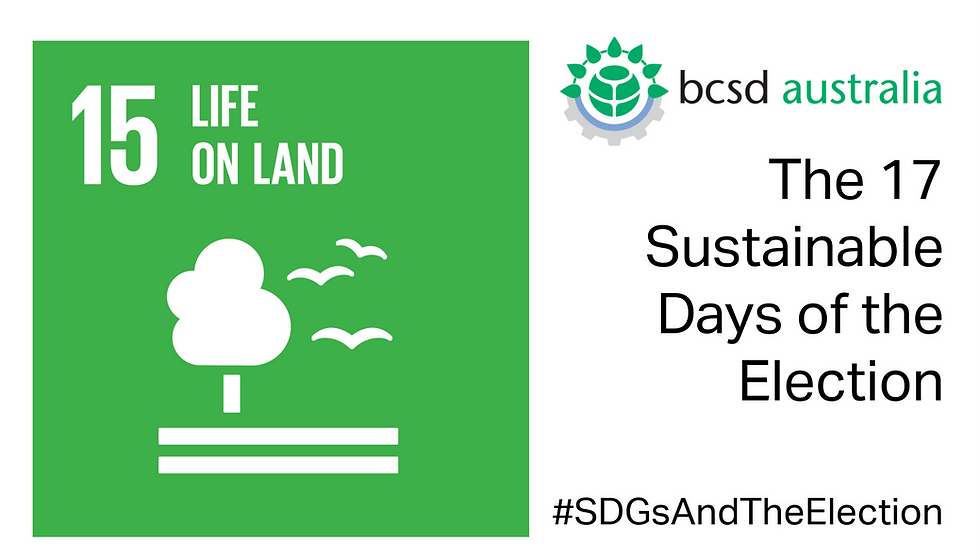SDG13: The 17 Sustainable Days of the Election
- May 13, 2019
- 3 min read
Updated: May 27, 2019
Through the lens of the UN Sustainable Development Goals (SDGs), over the 17 days leading up to the Australia’s national election we will be highlighting the challenge for an inclusive and sustainable Australia, what can be done to address the challenge and what BCSD Australia, as part of a global WBCSD network is doing to create impact.
On Day 13, we are looking at SDG13: Sustainable cities and communities

A lack of consensus on climate policy over the past two decades has cost Australia dearly. It is harming our national environment, our international reputation and our economic prospects in a future low-carbon world.
Much is made of Australia’s absolute carbon footprint being relatively small, but it misses the point that the country's global footprint has been rising much faster, with Australia's exported carbon in the form mostly of coal and gas doubling from 500 million tonnes in 2000 to 1.1 billion tonnes last year, according to the Grattan Institute.
And despite Australia’s commitment to reduce its total emissions by 26-28% below 2005 levels by 2030, unfortunately, Australia is not yet on track to meet even this goal. And in all of this, while access to electricity is near universal in Australia, the retail price of electricity has more than doubled in the past decade. Australian business and households want action on climate change, not climate wars.
So our society, our infrastructure and our economy are vulnerable to climate change, lacking a national resilience plan for what the UK Government resolved is a climate emergency.
Strong action on climate change is vital if Australia is to thrive into the future
The next two years will be crucial if Australia is to realise emission reductions throughout the economy to meet, and where feasible exceed, its Paris Climate Agreement commitment along with the rest of the world.
Australia’s economy-wide blueprint for emission reduction needs to include:
Set a target to reduce our net global carbon contribution to zero no later than 2050, including an ambition to submit progressively stronger targets every five years.
Well-targeted policies across all sectors of the Australian economy, not just the electricity and land sectors, to get back on track and meet our Paris targets.
Resuming the integration of a carbon price into the Australian economy, and strengthen investment opportunities in clean energy.
Hasten the take-up of renewable energy, as our Renewable Energy Target and state–based actions are now driving substantial investment in renewable electricity generation and renewables are likely to account for 23% of electricity generated by 2020.
Guaranteeing future energy supply remains affordable and reliable during the transition to a low-carbon economy, including for low-income Australians, who often live in poorly insulated and energy-inefficient housing and are often unable to afford solar panels and other high-cost items that help reduce energy bills, such as energy-efficient water heaters and appliances.
What is BCSD Australia doing to create impact to address these challenges?
We are working with a number of partner organisations on projects that will help to address this challenge here in Australia and around the world, including:
Follow us on Twitter and LinkedIn to see our latest posts on #SDGsAndTheElection each day.




Comments